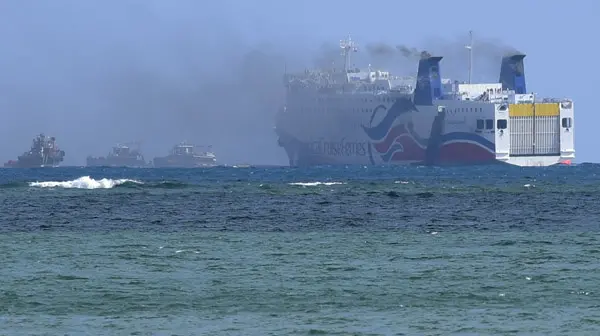By APD writer Du Xiaojun
Translated by Ma Qian
Last July, Narendra Modi made a historic visit to Israel, marking the first of an Indian Prime Minister. In February, Modi visited Palestine, becoming the first Indian Prime Minister to set foot in Ramallah.
In March, Saudi Arabia gave a green light to Air India to launch a flight, from India’s capital New Delhi directly to the Israeli coastal city of Tel Aviv, to go through Saudi airspace. The permission marks the first time that Saudi Arabia allowed an Israel-bound flight to have entered its airspace, ending a 70-year overflight ban.
Since 2015, the Modi administration has made close contact with countries in the Middle East, including the UAE, Qatar, Iran, Turkey and Saudi Arabia, made frequent visits to the region, and carried out much historic cooperation. What are the concrete schemes in Modi’s so-called “Middle East strategy?”
Modi’s Link West Policy and India’s layout in the Middle East
Since taking office in 2014, Modi has attached great importance to India’s diplomacy with neighboring countries. First, he maintained India’s ties with South Asian countries, including Nepal, Bhutan and Sri Lanka, to strengthen India’s presence around the India Ocean. Then, he expanded India’s Look East Policy into Act East Policy, namely to deepen relations with ASEAN countries, especially those having territorial disputes with China, such as Vietnam and the Philippines.
While at the same time, it has solidified its bilateral and multilateral security and cooperation mechanisms with Japan and Australia, so as to gradually expand its reach into the western Pacific. Last but not least, Modi introduced the Link West Policy to focus on the Middle East.
The Middle East is of vital importance to India’s energy security and foreign exchange earnings. However, due to ideological concerns, the previous Indian governments were not willing to put much political and diplomatic energy on the region, which was manifested by India’s relationship with Israel.
The two countries did not establish formal diplomatic relations until January 29, 1992. Although Israel constantly sent friendly signals to India, the Indian leadership chose to maintain its traditionally prudent diplomacy and did not strengthen its political relations with Israel.
After coming into office, Modi decided to change India’s layout of policies for the Middle East, namely, to strengthen ties with all countries in the region, including Israel, and positioned the Middle East as an important part of India’s diplomacy with neighboring countries.
Thus, shortly after coming into power, Modi met with Israeli Prime Minster Benjamin Netanyahu in New York. Then he made official visits to the UAE, Saudi Arabia, Iran and Qatar to unfold comprehensive cooperation in the fields of energy, anti-terrorism, economy and trade. In particular, Modi and Netanyahu exchanged visits last summer and at the beginning of this year.
India’s layout in the Middle East under the Link West Policy features “pivots” and “balance.” Taking the UAE, Saudi Arabia, Iran and Israel as four pivots, the Modi Administration has strived to tighten relations with countries in the region.
Meanwhile, India has maintained its traditional friendship with Palestine, striking a delicate balance among Palestine, Israel and other Arab countries. In February, Modi made a successful visit to Palestine, walking a tightrope between Israel and Palestine.
“Balanced diplomacy” hard to work with U.S. restrictions
There is a paradox in India’s “de-hyphenation” strategy of simultaneously befriending Israel and Palestine.
The development of India-Israel relationship has been closely connected with the tightening of India-U.S. ties. Concerning the Indo-Pacific strategy of the U.S., India has been placed high expectations. However, such expectations are in nature at odds with India’s traditional diplomacy featuring independence and non-alignment.
On December 21 last year, the United Nation Assembly passed a bill announcing that any decision or move to change the status of Jerusalem will be invalid. Before the vote, U.S. President Donald Trump had threatened that the U.S. would cut its financial aid to countries that dare to vote for the bill. However, India, on which the U.S. had put high hopes, voted for the bill. India’s move not only incurred complaints from Netanyahu during his visit to the country, but also caused disappointment and discontent of the U.S..
Therefore, India’s layout in the Middle East can be complicated to carry out, as it implicates multiple powers including the U.S.. It cannot be easy to maintain a balanced policy. There will still be various challenges for the Link West Policy of the Modi administration. India still appears immature as a player at the gaming table of the Middle East.
Ph. D. Du Xiaojun, researcher of APD Institute, is the lecturer of University of International Relations, Huaqiao University, and the Assistant Research Fellow of international security research center.
(ASIA PACIFIC DAILY)
 简体中文
简体中文





